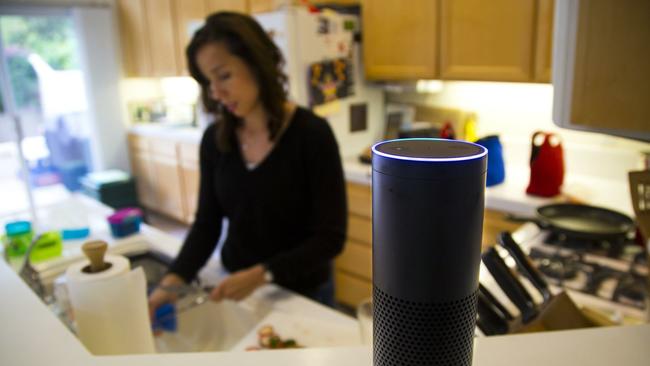That’s a bit rich coming from you. How do you mean?
Happy New Year to you too. To answer that you only have to look at what was one of the biggest selling consumer devices this Christmas. Self-dubbed “intelligent personal assistants” like Amazon’s Alexa, or Google’s Voice, are literally allowing people to use the power of their own voice. These devices are set to be become as prevalent and normal in our daily lives as downloading music on Spotify or running our lives through an iPhone. The likes of Amazon Alexa and Echo not only respond to our demands to play a radio station, look up train times, or switch our cooker on at a certain time of the day, they will increasingly be able to listen, learn and adapt to our personal way of talking and thinking so that its algorithms are more in tune with what we want. As machine learning becomes more sophisticated, cloud-based devices, like Alexa, will become more intelligent, powerful and useful.
Yes, but do we really want to be barking out orders to faceless machines?
You might have said the same thing about asking Google to do everything for you. IT research body, Gartner, estimates by the end of 2018, 30% of all web browsing globally will not be done on a screen, but by voice. Particularly as more voice activated devices become the norm in cars, self-service machines and other areas of business. Radiocentre, the UK industry body for commercial radio, predicts 40% of households will have an Amazon Echo device by next year, up from 9% in 2017. The pick-up in the US will be even faster with Gartner predicting 75% of US households will have a voice device by 2020, up from 7% now. Samsung has revealed this week that all its products will be voice controlled by 2020.
It all sounds a bit like Big Brother to me?
Well, you’d better get used to it, particularly if you don’t want to be left behind when such devices become mainstream. It is why major grocery brands are switching their advertising revenues more towards voice-based search to ensure their products are picked up by Alexa-style devices and the algorithms they use to recommend brands to their users.
What are the implications for the wine industry?
They present a major new challenge to the over complicated and duplicated category of wine. Already FMCG brands in major grocery categories are having to look at how well known their brands really are. How easy is it for consumers to remember and say their names? How many top selling products are actually just bought on impulse when recognised down a supermarket aisle? To be relevant to these digital assistants, brands need to be instantly known to users and, most of all, trusted.
What else?
You can see why searching for products by voice throws up major concerns for a category like wine that is driven by price, discounts and deals than real brand loyalty and awareness. Chances are it will be grape varieties, countries or regions that Alexa devices will have to interpret and recommend wines for. With so much duplication down the wine aisle it could be disastrous for many of our biggest selling brands unless they can find new ways to be remembered by their customers.
What does this mean for retailers?
Voice activation is potentially good news for major retailers as customers are likely to defer to own label lines when they can’t remember the name of the Pinot Grigio or Prosecco brand they drank last. But arguably less good news for all those retailer, here today, gone tomorrow exclusive brands that rely just on their price and positioning to be sold in-store.
OK, carry on...
But the major challenge to retailers comes from the likes of Amazon and Google that have invested so much in leading the way on voice assistant technology. Not only are they making and selling the devices, it makes them potentially more relevant and more powerful than traditional retailers. We can expect Amazon, in particular, to roll out huge swathes of its own branded products that consumers will trust to buy through voice. It’s already happening. In the US 15% of Alexa owners use them to buy products on Amazon. Its own basic battery brand now outsells major names such as Duracell and Energiser.
So what can wine businesses do?
They need to look at ways they can be relevant in a world controlled by voice rather than screen search. Become known and trusted as the brand, or the business, that knows everything and anything you want to know about what to do with wine. Can you be the brand synonymous with advice on what food to pair with wine? Become the go to brand for a particular country, region or grape variety. Brands will be able to work with the likes of Alexa to become seen as experts in their particular field. Drinks companies like Scottish craft beer business, Bellfield Brewery, are already working with Alexa to provide a range of messages that tell its back story, or let users know the nearest place where they can buy its beer.
So there’s a lot to be getting on with?
Indeed and not all of it needs to have anything to do with voice control now. Wine businesses need to start that journey by becoming more trusted, more relevant to their customers than just being a simple wine brand, retailer or merchant. The more layers you can add now to what your brand stands for, what services and expertise you can provide, the better placed you are to give power to your own voice when you need to.
* This was first published as part of the Grapevine views and insights newsletter I produce for the London Wine Fair.


